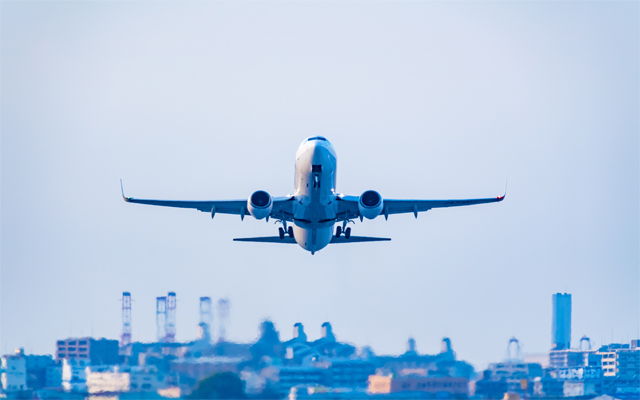The global aviation industry is slowing emerging from the Covid-19 doldrums, with more flights returning to the skies, but widespread recovery could take up to three years.
That was the consensus from a major industry poll conducted as part of FlightPlan: Charting a Course into the Future, an online broadcast by Inmarsat and the Airline Passenger Experience Association (APEX).

Despite bracing for a slow recovery, the poll reveals a sense of optimism for the industry’s future, with digitisation expected to drive the return to profitable growth.
The survey, which polled more than 500 professionals from across the global aviation industry between April and June 2020, showed that more than half of respondents (60 per cent) expect a recovery period between 18 months to three years. Only 13 per cent said they believe the industry was prepared for a crisis like Covid-19.
The results also offer deep insight into industry sentiment on the shape of recovery, what passenger journeys could look like post-pandemic, and the impact of the crisis on aviation sustainability goals.
Domestic travel is expected to bounce back quickest from the current crisis, with almost nine in 10 (85 per cent) predicting it will recover before international travel, which is at the mercy of factors like border restrictions and quarantines. This supports recent guidance by the IATA that rising flight volumes have been driven by recovery in some domestic markets, most notably, China.

Seven out of 10 respondents expect point-to-point travel will bounce back quicker than hub and spoke routes, with low-cost carriers expected to recover quicker than full-service carriers (55 per cent vs 45 per cent, respectively). In addition, 69 per cent of respondents expect a swifter recovery for business travel than leisure travel.
Interestingly, despite bailouts from many governments, only seven per cent of respondents believe governments have uniformly done enough to support the industry, reflecting the varied response actions across nations.
With a global recession potentially threatening investment in green technology, there was little consensus in the poll about the impact of Covid-19 on aviation’s path to sustainability, with 36 per cent believing the crisis will accelerate progress and 47 per cent thinking it will delay progress.

Dominic Walters, vice president of Inmarsat Aviation, said of the survey: “Even in a period of unrivalled uncertainty and volatility, there is a true sense of optimism about the shape of the industry in this new world. The results show a strong desire to accelerate recovery, an optimistic outlook for investment in passenger experience and sustainability initiatives, and a commitment to rebuild an industry fit for the future.”
David Coiley, vice president market enablement & market capture Asia Pacific, Inmarsat Aviation, added: “We believe that the Asia-Pacific and China regions will lead the recovery of commercial aviation, given its resilient domestic aviation sector. Since late April, the demand for flights continues to recover in the region, giving us high optimism. The critical aspect however, as the survey shows, is that the airlines will have to continue to make flight safety and hygiene a long-term and sustained priority.”
New health and safety guidance from aviation industry bodies such as APEX and IATA, including enhancing the traceability of customers and establishing clear aircraft decontamination procedures, has driven necessary changes to passenger journeys. The poll finds such developments are set to continue as the industry rebounds.
As a result of deeper cleaning measures, nine in 10 (88 per cent) expect slower turnarounds, which could have a significant impact on flight schedules. Contactless catering was highlighted by 57 per cent as being important during the recovery period, and almost half (44 per cent) expect to see empty middle seats as a common feature of the passenger journey in the coming months, despite contrary guidance given by IATA in May.
Despite the financial impact that many airlines are facing, almost half of respondents (45 per cent) believe that in terms of passenger experience, the crisis will only cause a short-term reduction in investment, and almost a third (32 per cent) believe there will be an overall increase in investment.

There was agreement that the adoption of digital and connected technologies will drive recovery, with data analytics, biometrics, artificial intelligence, and the internet of things set to have the greatest influence on future profitable growth. Majority (84 per cent) of respondents do not predict long-term disruption to passenger experience investment.

Philip Balaam, president of Inmarsat Aviation, said: “These survey results, together with the numerous discussions and debates during FlightPlan, indicate that the Covid-19 crisis may prove a decisive moment for digital transformation in an industry that’s historically been behind the curve, with the vast majority of aviation professionals expecting digital technologies to help drive a stronger return towards profitable growth.”




















